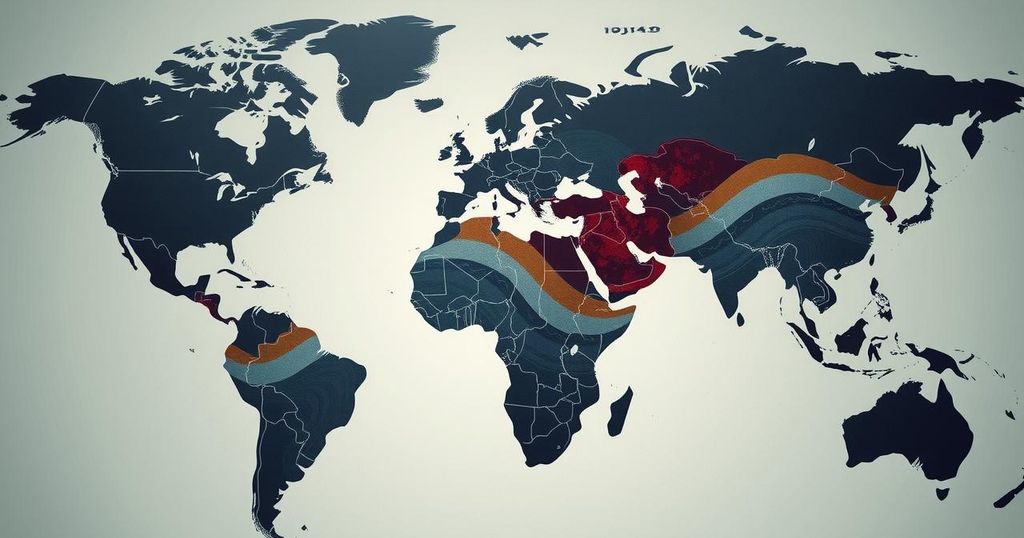Trump Restores Maximum Pressure Strategy Against Iran

President Trump reinstated the maximum pressure campaign against Iran, which aims to curb its escalating nuclear weapons program. The new memorandum directs U.S. agencies to apply sanctions and investigate Iran’s networks. The strategy, part of his first administration’s efforts, seeks to mitigate threats of nuclear proliferation following the collapse of the JCPOA.
On February 4, President Donald Trump signed a memorandum to reinstate the maximum pressure campaign against Iran, a strategy implemented during his previous administration. This initiative aims to confront Iran’s escalating nuclear weapons program, which has intensified instead of yielding a new nuclear deal.
The memorandum mandates the Departments of Treasury and State to impose sanctions, the Department of Justice to scrutinize Iran’s financial networks, and the U.S. Representative to the United Nations to advocate for international sanctions against Iran.
Originally launched in 2018 after withdrawing from the Joint Comprehensive Plan of Action (JCPOA), Trump’s strategy aimed to pressure Iran into achieving a more favorable agreement regarding its nuclear capabilities. However, Iran’s breaches of the JCPOA led to the collapse of negotiations.
While the Biden administration sought to resume JCPOA discussions, relations worsened following Hamas’s attack on Israel in October 2023. The U.S. Congressional Research Service reported that Iran’s nuclear program advanced significantly, raising alarms about its potential to construct a nuclear weapon within months.
Analysts believe that Trump’s previous maximum pressure approach did not fulfill its intended purpose and fostered closer ties between Iran, Russia, and North Korea. Some, however, advocate for its reinstatement as a necessary step toward fostering future negotiations with Tehran.
In discussing this new memorandum, Trump expressed reluctance yet emphasized the necessity of preventing Iran from obtaining nuclear weaponry. He stated, “We don’t want to be tough on Iran… but they just can’t have a nuclear weapon.” This sentiment reflects a longstanding U.S. policy position, emphasizing diplomatic solutions coupled with stringent measures to curb nuclear proliferation.
The background of this topic encompasses President Trump’s previous attempts to influence Iran’s nuclear ambitions, particularly through the maximum pressure campaign initiated in 2018 following the U.S. withdrawal from the JCPOA, negotiated under President Obama. The JCPOA was designed to limit Iran’s nuclear capabilities, but the reinstatement of sanctions, particularly after Iran’s violations, has led to escalating tensions. This background is crucial in understanding the current geopolitical landscape, especially post-Biden administration efforts to renew negotiations amid ongoing military conflicts in the region. The ramifications of Iran’s nuclear research programs not only affect diplomatic relations but also engage broader international concerns, including security pacts with allies such as Israel.
In conclusion, President Trump’s reinstatement of the maximum pressure campaign against Iran signifies a return to aggressive tactics aimed at preventing nuclear proliferation. Despite past criticisms of this strategy, supporters believe it could lay the groundwork for future negotiations. The delicate balance of international relations, especially in light of Iran’s evolving nuclear capabilities and its alliance with other nations, remains a critical concern for U.S. policymakers moving forward.
Original Source: www.upi.com








